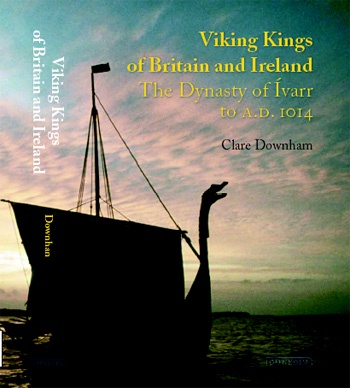A new book charting the deeds of a domineering Viking clan has cast fresh light on how they influenced the political make-up of modern Scotland and Britain.
Vikings plagued the coasts of Ireland and Britain in the 790s, establishing a number of settlements by the mid-ninth century and becoming heavily involved with local politics.
One particularly successful Viking leader named Ivarr campaigned on both sides of the Irish Sea in the 860s. His descendents dominated the major seaports of Ireland and challenged the power of kings in Britain during the later ninth and tenth centuries.
Now new research has been published showing just how much influence Ivarr and his family had in the formation of the medieval kingdom of Alba, the forerunner to Scotland.
Dr Clare Downham's new book, Viking Kings of Britain and Ireland: The Dynasty of Ivarr to AD 1014, was released this month.
"The dynasty of Ivarr on British and Irish politics can be seen as part of a broader pattern of Viking-activity which stimulated long-distance trade and military campaigns," said Dr Downham, a lecturer in Celtic at the School of Language and Literature.
"The descendents of Ivarr were involved in the foundation of viking-settlements. This activity contributed to the development of distinct hybrid identities in places like Dublin, Galloway, Strathclyde and the Hebrides.
"It is also possible to argue that Vikings contributed to the development of national identities in England, Alba and Ireland through their impact on political structures and political rhetoric, as archetypal foreigners whom national heroes defeated."
During the Viking Age, England and Alba each underwent a process of political unification and expansion after they had vigorously fought against Ivarr's family in the late ninth century.
"Wales and Ireland had similar potential, but for various reasons they failed to subdue the descendents of Ivarr," added Dr Downham. "As a result, these Vikings became embroiled in local rivalries which in time made it harder for a monarchy to emerge.
"The descendents of Ivarr were therefore involved in formative processes of political development in Britain and Ireland. Their influence was greater – chronologically, geographically, and politically – than has often been allowed."


